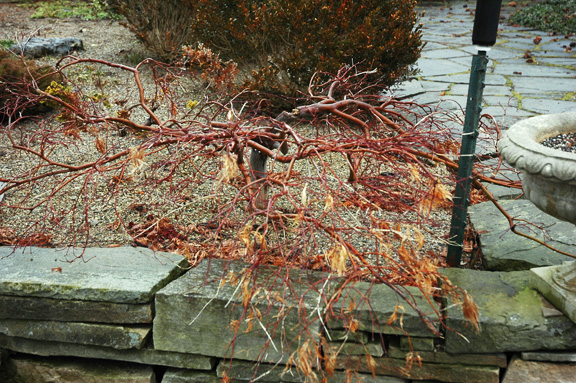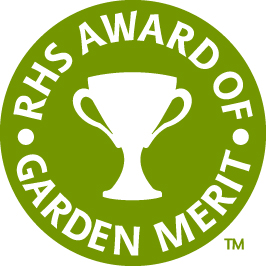| General Description | ‘Inaba-shidare’ differs from other Acer palmatums in its leaf shape and deep colour. ‘Inaba Shidare’ is unique in that it is a mounding grower, yet has an outstanding cascading form. This tree prefers rich, well-drained soils and part sun/part shade. |
| ID Characteristic | ‘Inaba-shidare’ looks excellent next to water features and as a focal point in a garden. The leaves are purple, turning bright crimson in autumn. This tree is smaller than other Japanese Maples and sports an upright to mounded habit.
|
| Shape | Mounding - cascading |
| Landscape | It is an excellent selection for an accent plant, a focal point in a garden, shrub border, and also bonsai. Works well around pond areas and in front of planting beds to create interest where its pendulous form can be appreciated. |
| Propagation | Acer palmatum ‘Inaba Shidare is propagated by grafting. |
| Cultivation | Plant in moist well drained soils high in organic matter. Full sun / partial sun / partial shade. Make sure to protect the plant from oncoming winds or frost due to its sensitivity to the cold. Soil pH: Acidic, neutral, alkaline.
|
| Pests | Asian longhorn beetle, aphids, scale, borer, scorch, girdling roots, verticillium wilt.
|
| Notable Specimens | The A.M. Cuddy Gardens, Strathroy, Ontario, Canada. |
| Habitat | Horticultural origin. |
| Bark/Stem Description | Young branches are burgundy–red. Bark is smooth with a gray green, gray slate colour.
|
| Flower/Leaf Bud Description | The base of the petiole basically hides the buds. These buds are usually terminal pairs, small red or green and are usually velvate in character. |
| Leaf Description | ‘Inaba-shidare’ is purple to burgundy-black with an outstanding crimson red autumn colour. The leaves are deeply incised with seven serrated lobes. The petioles are dark burgundy red. The foliage changes in intensity as the seasons progress.
|
| Flower Description | ‘Inaba-shidare’ has tiny red-purple single petal flowers that are followed by red winged fruit in late summer. The flowers on ‘Inaba-shidare’ are not fragrant and it is not a repeat bloomer.
|
| Fruit Description | ‘Inaba-shidare’ produces a red-green samara in late summer. The samara is 1–2 cm long. Wings are 5 -8 mm wide. Fruit ripens in September - October. |
| Colour Description | The larger, more intricate leaves are a deep tone of purple-red as they emerge in the spring and retain this brilliant colour all season. The autumn colour is outstanding as it turns from purple red to a crimson tone. |
| Texture Description | Leaves are up to 16 cm long and about 14 cm wide, petiole is 2.5 cm – 5 cm long. Each lobe is further divided, giving a feathery or fern-like texture. The texture of the trunk looks and feels scaly. Texture stays similar throughout the winter months. |

